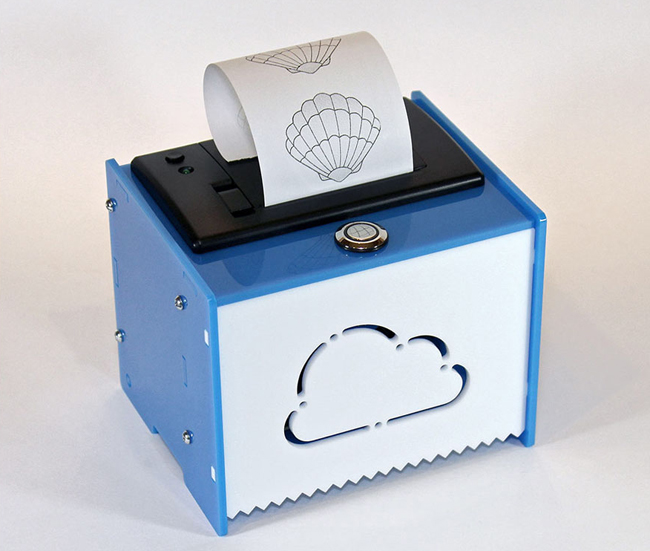 Besides using your Raspberry Pi computer to manage your digital beer list, you can actually build a Wi-Fi printer and program it to print whatever you like from the Internet. With Adafruit’s latest Internet of Things (IoT) Wi-Fi printer kit, you can build your own BERG Little Printer and save a bit of money at the same time: the Adafruit kit is just $190 compared to the $219 BERG.
Besides using your Raspberry Pi computer to manage your digital beer list, you can actually build a Wi-Fi printer and program it to print whatever you like from the Internet. With Adafruit’s latest Internet of Things (IoT) Wi-Fi printer kit, you can build your own BERG Little Printer and save a bit of money at the same time: the Adafruit kit is just $190 compared to the $219 BERG.
The IoT printer kit includes the Raspberry Pi model B computer (a $35 value), which plugs into the bottom panel inside the printer and runs Raspbian Linux, and the printer can be customized if you know how to code in Python. According to Engadget, unlike the previous Adafruit Ethernet-based printer kit, this model can handle typography and graphics in addition to text, so you can take advantage of Python’s extensive image libraries to make your print-outs more aesthetically pleasing.
Don’t know how to code? No problem. This printer has several neat tricks built-in that will be able to make good use of your roll of 2.25-inch receipt paper. Out of box, this little device will be able to spit out daily weather forecast reports, Sudoku puzzles, images, and even tweets. You can tell the printer to output tweets from a particular person, hashtag, or tweets that mention a specific keyword. This way, you can keep 140-characters of wisdom in your pocket, stick it on a fridge for bragging rights, or show your non-tweeting mom your witty one-liners.
To put this printer together, you do need to have some soldering tools and skills, but Adafruit believes it’s a simple enough project that you should be able to put it together over the weekend. The company isn’t taking orders just yet for this Wi-Fi printer, but you can sign up to find out when it will go on sale. Alternatively, you can go for the $100 cheaper Ethernet version so you can start printing now.
Editors' Recommendations
- This custom hoverboard is entirely powered by Raspberry Pi
- Powerful upgrades turn 4th-gen Raspberry Pi into a more capable $35 desktop


